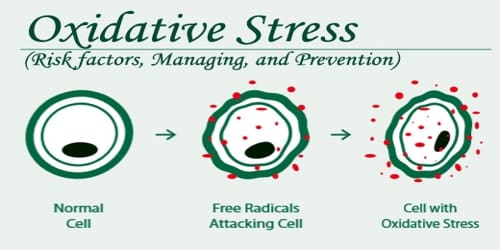Every organism in the world needs water. From tiny insects till blue whales, every life on Earth exists with the presence of water. A plant needs water to grow and stay fresh. A whale needs water as a place it lives. We cannot lead our day to day life without water. Water makes up more than half of our body weight. Without water, all organisms in the world would die. Water is necessary not only for drinking but also for our day to day life purposes like bathing, cooking, cleaning, and washing, and so on. We cannot imagine life without water. Other than drinking and household purposes, water is important for the existence of our world.
Humans drink water that has qualities compatible with the human body. Around seventy percent of the World’s surface is secured with water and the seas hold around ninety-six percent of all earth’s water. Water also comes in three forms that are liquid, vapor, and solid.
Water is important for the body because our body uses water in all its cells, organs, and tissues. Water in the body has many functions that include regulating body temperature, lubricating joints, carrying nutrients and oxygen to cells, protecting body organs and tissues, helps to dissolve minerals and other nutrients to make them accessible to the body, and helps to prevent constipation. The human body loses water through breathing, sweating, and digestion, so it important to rehydrate the body by in taking fluids and eating foods. The human body can go eight to ten days without water. The body needs nourishment and water to survive. Research shows at least sixty percent of the adult body is made of water and every living cell in the body needs water to continue working.
Because your body loses water through breathing, sweating, and digestion, it’s important to rehydrate by drinking fluids and eating foods that contain water. The amount of water we need depends on a variety of factors, including the climate we live in, how physically active we are, and whether we are experiencing an illness or have any other health problems.
The human body has loads of important jobs and it needs water to do a significant number of them. For example, our blood which contains a huge amount of water passes oxygen to all the cells of the body, and without oxygen, those tiny cells would die, and the body would stop working.
Water Protects Our Tissues, Spinal Cord, and Joints: Water does more than just quench our thirst and regulate our body’s temperature; it also keeps the tissues in our body moist. Do we know how it feels when our eyes, nose, or mouth gets dry? Keeping our body hydrated helps it retain optimum levels of moisture in these sensitive areas, as well as in the blood, bones, and the brain. In addition, water helps protect the spinal cord, and it acts as a lubricant and cushion for our joints.
Water Helps Our Body Remove Waste: Adequate water intake enables our body to excrete waste through perspiration, urination, and defecation. The kidneys and liver use it to help flush out waste, as do our intestines. Water can also keep us from getting constipated by softening our stools and helping move the food we have eaten through our intestinal tract. However, it should be noted that there is no evidence to prove that increasing our fluid intake will cure constipation.
Water Aids in Digestion: Digestion starts with saliva, the basis of which is water. Digestion relies on enzymes that are found in saliva to help break down food and liquid and to dissolve minerals and other nutrients. Proper digestion makes minerals and nutrients more accessible to the body. Water is also necessary to help us digest soluble fiber. With the help of water, this fiber dissolves easily and benefits your bowel health by making well-formed, soft stools that are easy to pass.
Water Prevents Us From Becoming Dehydrated: Our body loses fluids when we engage in vigorous exercise, sweat in high heat, or come down with a fever or contract an illness that causes vomiting or diarrhea. If we are losing fluids for any of these reasons, it’s important to increase our fluid intake so that we can restore our body’s natural hydration levels. Our doctor may also recommend that we drink more fluids to help treat other health conditions, like bladder infections and urinary tract stones. If any women are pregnant or nursing, they may want to consult with their physician about their fluid intake because their body will be using more fluids than usual, especially if they are breastfeeding.
Although we drink water to survive water is also important to our body because we need it to cook healthy meals. Most bacteria do not live above 120°F, and as we increase the temperature we kill more of them. At 102°F, most bacteria can no longer reproduce.
Water is a very crucial substance which at the same time is scarce. Though we see a lot of water in the oceans around the continents, the truth is we cannot consume seawater from the oceans. Only 3 % of the world’s water is in a form we can consume.
The resources of freshwater are:
- Excavated Dams
- Glaciers
- Soil which has a lot of freshwaters absorbed in
- Rivers
- Lakes
- Under Rocks
With much scarcity of water and high necessity of the same, it becomes so important that we need to undertake conservation programs for saving water.
Earth is the only recognized planet having water and life today. So, we should not overlook the value of water in our life and aim our best to save water by using every achievable means. The earth is covered up with about 71% water yet with just 3% of drinking water. The typical cycle of water balance runs as expected like evaporation and rain. Nonetheless, the trouble is with the saving of clean and consumable water on the earth which is accessible in very little quantity. Water conservation is achievable with a good lifestyle of human beings.
Information Sources:
















